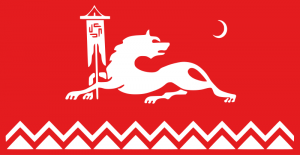Language/Avaric/Grammar/Plurals
Hi Avaric learners! 😊
In this lesson, we will focus on the plural form of nouns in Avaric. Plurals are important to learn as they help in communication when we need to refer to more than one object or person. We will illustrate this lesson with cultural information and interesting facts. If you want to improve your Avaric Grammar, you can also use the Polyglot Club website. Find native speakers and ask them any questions! Don't be shy. 😊
Let's get started!
Plural Formation[edit | edit source]
In Avaric, plural nouns are formed by adding suffixes -гал/-гӀал (-gal/-ġal) or -ллага/-лаг (llaga/-lag) to the singular noun. The choice of suffix depends on the last letter of the singular noun.
Here are some rules to determine which suffix to use:
- If the last letter is а/ч/к/т/п/х/ф/е/ӏӏӏ/ӏӏ/р (a/ch/k/t/p/kh/f/e/lll/ll/r), then add the suffix -гал/-ġal to form plural.
- If the last letter is о/ё/ю/я/ы/и/у (o/yo/yu/ya/y/i/u), then add the suffix -ллага/-lagga to form plural.
Here are some examples:
| Singular | Plural (-гал/-гӀал) | Plural (-ллага/-лаг) |
|---|---|---|
| гӀайба (ġayba) | гӀайбагал (ġaybagal) | гӀайбаллага (ġayballaga) |
| боккх (bokkh) | боккхгал (bokkhgal) | боккхллага (bokkhlaga) |
| корби (khorbi) | корбиллага (khorbillaga) | корбигал (khorbigal) |
| лашгӀукӀ (lashġuk) | лашгӀукӀгал (lashġukġal) | лашгӀукӀллага (lashġukllaga) |
As you can see from the examples above, the suffixes can completely change the sound and spelling of the nouns. It is important to practice plural forms regularly and to pay attention to the last letter of the singular noun.
Exceptions[edit | edit source]
As with any language, there are exceptions to the rules. In Avaric, some nouns form plurals irregularly. Here are some examples:
| Singular | Plural |
|---|---|
| де (de) | дедж (deǯ) |
| кIоьл (khol) | кIул (khul) |
| гъа (ġa) | гъагъ (ġaġ) |
| ятI (yat) | ятIал (yatal) |
In the examples above, the plural forms do not follow the typical rules. It is important to memorize the irregular plurals to use them correctly.
Cultural Tidbits[edit | edit source]
In Avar culture, plural forms are often used to express warmth and affection. For example, calling someone зӀалаш (z'alash), meaning "little heart," is a term of endearment and friendship commonly used among Avars. The plural form зӀалашшар (z'alashshar) is also used to refer to a group of close friends or allies.
Another interesting fact about Avaric plurals is that they can also carry a sense of respect or formality. For example, the plural form къустангал (qustangal), meaning "your feet," is often used as a polite way to address someone in the Avar language.
Dialogue[edit | edit source]
To help you see plurals in context, here's a dialogue between two friends:
- Person 1: советист двиггаца (sovetist dviggatsa) - "The Soviets are moving."
- Person 2: хорийгӀал гӀарьд (khorijgal ġar'd) - "The mountains are beautiful." (plural form of кӏори - khor)
Conclusion[edit | edit source]
We hope this lesson on Avaric plural formation has been helpful to you. Remember to practice regularly and pay attention to the last letter of the singular noun when forming plurals. Feel free to ask any questions in the comments section below!
Sources[edit | edit source]
Having concluded this lesson, consider checking out these related pages: Say Hello and Greetings in Avaric, Pronouns & Future Tense.
Other Lessons[edit | edit source]
- Give your Opinion
- How to Use Be
- Negation
- Future Tense
- Adjectives
- Questions
- Pronouns
- Conditional Mood
- How to Use Have

